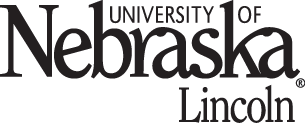Not to fall down. And they picked me. And they picked out about 30 men and they took us to a, to the bath house. We went to the bath house. They bathed us again. They disinfected us, and they gave us work in the bathhouse. The bathhouse was a place where they used to, after the selection that they took away, the women and children and the older people to the crematorium to gas them and burn them. They left the younger ones and the healthier ones they left and they put them to work in the camps.
So we, before they went to the camps, our job was to bath them and strip them from all their clothes. And disinfect them and gave them prison clothes and send them out to the camps. When they were undressing and dumped all their clothes on the on the ground and walking out of the barrack, we used to take the clothes and put them on trucks. And while we were walking from the barracks into the to the truck to load the clothes, we searched through the pockets and found some valuables. Of course, we didn't dare to let anybody see it because if they would find, if they would catch us doing that, they would kill us right in the spot. So we hid whatever we can find. And then we had a chance to trade it with some people that work with civilians, take it to work and bring us an extra piece of bread for that or something else that's edible. The most important thing for us was to get something extra to eat.
After working in the bathhouse for about three, four weeks, they came in and they said, they need eight men for a special job. We're going to be working at night. We didn't know what the work was. When they came the first time to take us out, they came about midnight and they took us over to the women's camp. And we got into a barrack and they were dead women lying in the barracks and our job was to drag them out and load them on trucks. They told us that those women died of a disease because every morning when we went back to the camps after the work was done at night, we loaded about between 800 to 1200 women every night. They told us that the women died of disease and they wanted us to get showers and dissenfect. And they gave us every morning, they gave us a loaf of bread and a salami. And in two, three weeks, I gained about 80 pounds. I had ate so much from the what they gave us the extra bread and the salami. Then we found out that the women didn't die of any disease, but they used to bring in from other barracks to this special barrack, they brought in the thousand women. They fed them some soup at noon and at night they were dead. We found out that they were poisoned the soup and they want to eliminate some people. I don't know. They, they usually used to take them to the crematorium and gas them, but they wanted do a different way. So they, they poisoned them with the food. And we were loading those women in in on trucks and they took them to the crematorium and burned the bodies. It was going on for about four or five weeks. Every night.
They took us from Birkenau to Buna and I was assigned to the machinists commando. There were 800 people assigned to that commando. First time when we went out to work, we got assigned three prisoners to two civilians. And my job was pipe fitting.
I was in Buna until May until January the 18th, 1945. And the Russian front start getting a little closer. So they start to preparing to marched us out out of the camp. And one night, March 18 was cold, about two feet of snow on the ground. They get us, get out, gathered up, gathered us up in the camp. Took out all the bread with anything that was left over in the kitchen. And they gave us to us prisoners. And they took us out at night to march someplace. We didn't know where we were going.
While we were marching out of Buna. One of the guards came over to me and he said, you take that dog. And if we get to our destination, I will take him back from you. Says that take good care of him because this dog belongs to the camp commandant Schwartz from Auschwitz. That dog saved my life because first of all, he was a lot of people walking in the snow and weak and hungry. They, they dropped, but when they dropped they, they, they, uh, killed you right there. But the dog pulled me through the snow. And not only that, a lot of people were carrying some food, some bread. And when you walk, everything becomes so heavy. So they threw out everything and the dog sniffed it and found bread and and some meats, some sausage, what they had. And they, the dog found that. And I was gathering that stuff up. And that was easier for me because the dog was pulling me.
After three days and three nights marching we got into a place they called Gleiwitz that was a, a center where they brought in a lot of prisoners and they loaded them in railroad cars. They put us in, in boxcars, open boxcars, coal cars, and about 250 of us into a, to a car. And we didn't have any room to sit down. No, not talking about laying down even to sit down. So we stood, stood up all the time. We were standing. And the ones that had that place next to the, to the edge of the car found out later, we had it a little better because when the train took off with 12,000 prisoners. And they dragged us for 14 days from Gleiwitz to Czechoslovakia to Austria to Germany, into central Germany. And they never gave us a drop of water or anything to eat. And whoever stood there, the edge of the car got a pot or something. And we took a few strings and tied on to the pot. And we scooped some snow. When the train was moving from the ground.
And after two weeks, we came into a place where there was all mountains, always all mountains. We didn't see nothing else. And we got in between the mountains, in the train and we got into a camp they called Dora and they had about 120,000 prisoners in that camp. We didn't see absolutely nothing from the outside. That was the camp where they manufactured the D2 rockets. I wasn't at camp for about three months.
And after three months, the Russian front start coming a little closer. And then they decided one night to take us out from that camp. So they cooked up a soup for us, and they fed everybody the soup. We were 400 and they gave us a soup to eat and they start marching us out of the camp. Something was wrong with that soup because everybody got diarrhea and we're walking for about seven days. And we let left a trail all the way till we came to the place where they wanted us to, to go.
We came to a place to the Elbe River and there was a barge sitting over there waiting for us. Before we got on the barge, one of the guys fell down and he couldn't get up. He was so weak. So one of the SS troopers grabbed me and he says, go and bury him. He gave me a shovel. It was grass. They gave me a shovel to dig in the grass. Everybody got a ration of bread because they want wanted, they went to put us on the barge. So I held under my arm. I didn't dare put away the bread on the ground because somebody would grab it right away. So I held on my arm that bread, and I was digging the hole with a shovel. And I looked at it and the man he was still alive. I said my God, I was thinking, I got bury the guy he is still alive. And then a German soldier from the Luftwaffe came by and he says to me, what are you doing here? He says, I got a bury him. He said to me, he says, he's still alive. I says, I know, but I got the order from SS to bury him. So he took out his gun and he shot the man.
So when we got liberated we were in the camps, right away they opened up an office, they call it UNRRA office. And they started repatriating those people from the camps to their countries. The Russians start going to Russia. The Belgiums went to Belgium, the French, but we, some of us didn't have no place to go.
My name is Irving Shapiro. My name is Irving Shapiro, Nebraska. I'm from Gering, Nebraska businessmen. Of course I wasn't always a businessman. I had, I was born in Miedzyrzec, Poland, April [inaudible], April the 15th, nine, I had a large family, lots of aunts, cousins, family, lots of aunts, uncles, and grandparents. And they old grandparents during the Holocaust, all perished during the Holocaust. The only one, the only one left was my young brother which I was shipped out with brother, get up with him, which I will do a camp shipped out into [inaudible] into a, I named my three months at three months in a transport the three months. And I share a and I never saw him again, still trying to find them. I'm still searched for him, trying to find them search for him. But I didn't have any luck so far. I didn't have any luck so far.






